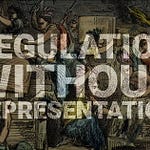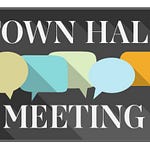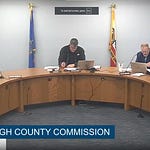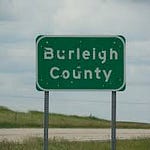As North Dakota legislators continue to submit numerous bills to be considered this upcoming legislative session, incoming-governor Kelly Armstrong was quoted as saying:
“I’ve been having property tax meetings at least once a week since June,” he said on WDAY Radio’s Jay Thomas Show Monday. “I’ve had three of them today (Monday) already.
“There’s 50 different bills in the legislature dealing with property taxes,” he said. “That’s too many. We need to galvanize around the most significant and durable relief and reform package that we can do.”
This is a growing number every day as new legislators start drafting their ideas.
Last week, Gary Emineth and I discussed this very issue on his Open Range show on BEK-TV (watch whole video above, or snippets below.)
In the 1st segment, we discussed the overall challenges involved with trying to reform properties taxes, and how it has been a mostly futile effort for decades (which led to Measure 4 being on the November ballot.)
We discussed the basic realities of property taxes that are most widely complained about, and that any proposed fix needs to have an element of fairness.
I outlined my proposed framework for what I could consider to be a “comprehensive property tax reform” plan.
Exempt the median value of every primary residence from all property tax, and adjust that exemption annually.
Freeze the valuation increases that lead to the “unrealized capital gain” attached to valuation based property taxes after 15 years of owner-occupancy.
Fully-fund K-12 education from the state level to completely remove education from the property tax ledger.
In the 2nd segment, we discussed how another piece of the fairness challenge is to eliminate as many exemptions as possible.
Because fully funding K-12 education and exempting the median value of every primary residence would likely reduce the overall property tax burden by 50% or more, the need for exemptions on certain types of property will no longer be needed.
By eliminating these exemptions, the fairness and flatness of property taxes can be improved, as well as the fiscal note cost to shift to state funding sources.
In the 3rd segment, we discussed the issue that incoming-Governor Kelly Armstrong raised: how do you go through 50+ bills and consolidate them in a timely manner, early enough in the session to make sure that piece comes first?
I suggested that soon-to-be Governor Armstrong create a state-alone “blue ribbon panel” committee of folks involved in administering property taxes as well as those suggesting constructive solutions.
In the 4th segment, we discussed what could be expected from the Armstrong Administration and how his dynamic as a trained lawyer may play into his effectiveness.
We also discussed the North Dakota Republican Green New Deal, and what having Doug Burgum in charge of (at least nominally) President Trump’s energy policy; as well as the challenges the energy industry faces from states attempting to limit their purchase of coal generated power.
There is no silver bullet for reforming property taxes.
But it was made clear during the Measure 4 fight this fall, that even the opposition to eliminating property taxes agrees something fairly drastic needs to happen.
Legislators will need to have the courage to stand up to local governments pushing against major change, and the voters will have to be willing to call their bluff next time if nothing significant happens.














